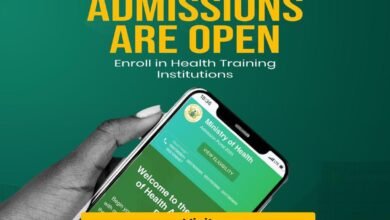Top 7 Mistakes Education Students Make And How to Avoid Them

No one’s perfect. But as a college of education student, knowing what mistakes to avoid can save you time, energy, and stress. Whether you’re in your first year or preparing for teaching practice, these are common traps students fall into and how you can stay one step ahead. Join us on WhatsApp for more updates https://chat.whatsapp.com/IwYdwerq679JpLNCAQXatL
1. Ignoring the Importance of Lesson Planning
Some students treat lesson planning like a last-minute task. But solid lesson plans are the foundation of effective teaching. Without them, your classes can feel scattered and unfocused. Start practicing early even for mock lessons. It builds confidence and gives you an edge during practicum.
2. Waiting Too Long to Prepare for Teaching Practice
Many students don’t prepare for teaching practice until the last minute. They forget to brush up on classroom management or relevant curriculum content. Get ahead by reviewing key teaching methods and observing real classrooms before your placement starts. The earlier you prep, the smoother your experience.
3. Memorizing Instead of Understanding
It’s easy to fall into the trap of cramming for exams. But memorized facts fade quickly real understanding lasts. Focus on making connections between theory and classroom practice. This deeper understanding will help you pass your exams and succeed when you’re actually teaching.
4. Not Asking for Help
Whether you’re struggling in a course or unsure about how to structure a lesson, staying silent doesn’t help. Ask your lecturers, peers, or mentors. Seeking help isn’t a weakness it’s a smart move that shows you’re serious about growth.
5. Skipping Reflection After Lessons
One of the best ways to improve as a teacher is by reflecting on your lessons. What went well? What could be better? Many student teachers skip this step but it’s where the real learning happens. Take 5–10 minutes after each teaching experience to jot down notes and lessons learned.
6. Underestimating Soft Skills
Being a good teacher isn’t just about knowing content. It’s also about communication, patience, empathy, and organization. These skills matter—both in the classroom and when applying for jobs. Start developing them now by volunteering, leading study groups, or mentoring younger students.
7. Not Treating School Like a Real Job
When students don’t take teaching seriously during practicum, mentors notice. Come prepared. Be on time. Dress professionally. Think of it as your future career not just a college requirement. You’re building your reputation now.
Mistakes are part of learning. But the more aware you are of these common traps, the better prepared you’ll be. Stay intentional, stay reflective, and keep growing. Every step you take now shapes the kind of teacher you’ll become. Feel free and share on all platforms thank you for reading.




